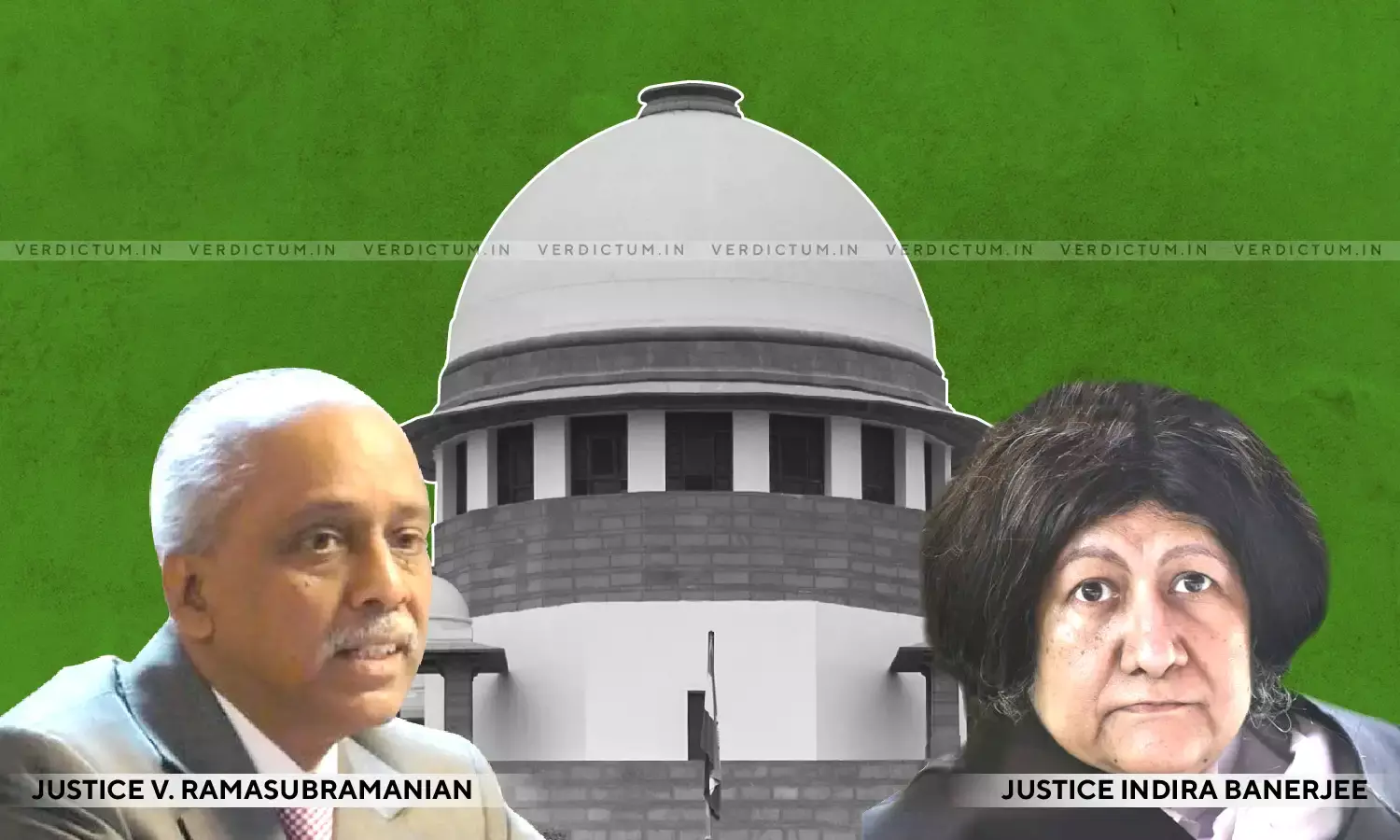Origin Of Blood On Recovered Weapons Not Determined- SC Acquits Accused Since It Did Not Satisfy Judicial Conscience

A two-judge Bench of Justice Indira Banerjee and Justice V Ramasubramanian has held that the investigation by the Investigating Officer was carried out not with the intent of unearthing the truth but for burying the same fathom deep. While taking note of divergent views about the need to determine the source of blood on articles recovered from the accused, the court held that "there cannot be any fixed formula that the prosecution has to prove, or need not prove that the blood groups match. But the judicial conscience of the Court should be satisfied both about the recovery and about the origin of the human blood."
Appeal was preferred before the Supreme Court by Accused 2 and 3 against the Judgment passed by the Divisional Bench of High Court of Madhya Pradesh at Jabalpur upholding the conviction of Accused 2 and 3 for offences punishable under section 302 read with section 34 of IPC and sentencing them to life imprisonment with fine by 1st Additional Sessions Judge, Sagar, M.P.
It was alleged by the prosecution that Accused 1, 2 and 3 had murdered the deceased in furtherance of a common intention and Accused 2 had intimated the police that Ruia & Kailash (PW 6 and PW7) had committed the murder of the deceased.
However, a case was registered by the police against Accused 1, 2 and 3 while Ruia and Kailash (PW6 and PW7) were arrayed as witnesses.
It was contended by the Appellant that the conviction of based entirely upon assumptions (surmise) and that such conviction is wholly unsustainable in law.
While the prosecution placed reliance upon the seizure of the weapons used for committing murder from the houses of the accused under seizure memos and report of the Forensic Lab, it argued that prosecution had established the guilt of the accused beyond reasonable doubt and that the Sessions Court and High Court were justified in relying upon the evidence.
The Supreme Court referred to the testimony of the star witness (PW9) and held that the investigation in the case instead of proceeding in the pursuit of the truth had proceeded towards burying the truth.
The Bench observed that in the normal course the investigation should have taken place against PW6 & PW7, however, it proceeded in the reverse gear by making Accused 1, 2 and 3 the offenders and PW6 and PW7 as witnesses.
"We are clearly of the view that the investigation in this case was carried out by PW14, not with the intention of unearthing the truth, but for burying the same fathom deep, for extraneous considerations and that it was designed to turn the informant and her family members as the accused and allow the real culprits named in the FIR to escape," the Court noted.
The Court noted that the conduct of the accused after the incident was not in tune with the normal conduct of a murderer. One of the accused had taken the victim to the hospital. The Court also noted that the accused did not get the best legal assistance and were represented by amicus curiae before the High Court. The Court held that in such cases the burden of the courts is very heavy and that the courts below did not discharge that burden properly.
The Court finally acquitted Accused 2 & 3 including Accused 1 holding that even though Accused 1 did not prefer an appeal, since the Court has disbelieved the story of the prosecution in its entirety, to deny the benefit of the said conclusion to Accused 1 merely on the ground of technicality would be to close eyes to injustice, especially when the Court is empowered to do so under Article 142 of the Constitution.
Hence the Court allowed the appeal and set aside the convictions imposed by the Sessions Court and High Court of MP as against all the three accused and ordered for their release.

